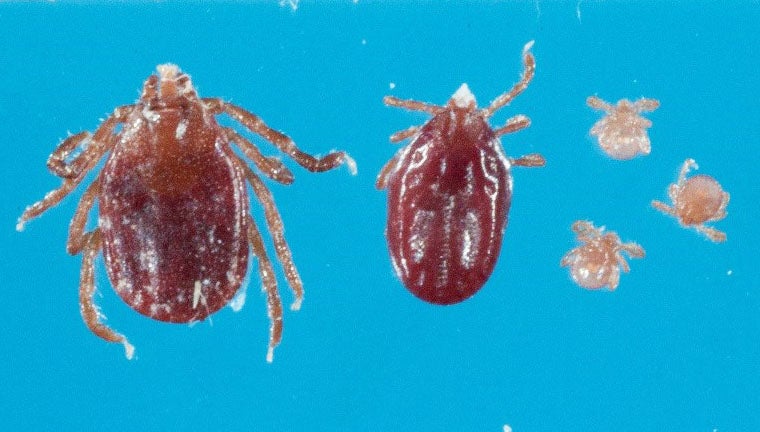Invasive tick species found last year in New Jersey survived winter
The longhorned tick is known to transmit diseases in East Asia, but no disease has been detected in the ones found in Hunterdon County.

This longhorned tick was discovered on a farm in Hunterdon County, New Jersey, in November. (Photo courtesy N.J. Department of Agriculture)
An East Asian tick species that made its first U.S. appearance in a Hunterdon County pasture in November has survived the winter.
Now, New Jersey officials are now trying to wipe it out.
The longhorned tick is known to transmit diseases in East Asia, but no disease has been detected in the ones found in the state, said Manoel Tamassia is the director of the New Jersey Agriculture Department’s Division of Animal Health. “I don’t see this as a threat to the human population because, so far, we seem to have it located in a confined area. We’ll try to eradicate it from there.”
If the tick is detected again after pesticides are applied to the pasture, Tamassia said, treatment of the area will continue until they’re gone.
“We are also monitoring outside of this pasture to see how far out it might have migrated on wild animal species,” he said. “But, so far, we have not found it on wild animals around the farm.”
Just how that tick arrived in New Jersey is a mystery.
New Jersey officials request that anyone who finds an unusual tick report it to the state Division of Fish and Wildlife, Bureau of Wildlife Management, at (609) 984-6295 or the Office of Fish and Wildlife Health and Forensics, at (908) 637-4173, ext. 120.
WHYY is your source for fact-based, in-depth journalism and information. As a nonprofit organization, we rely on financial support from readers like you. Please give today.




